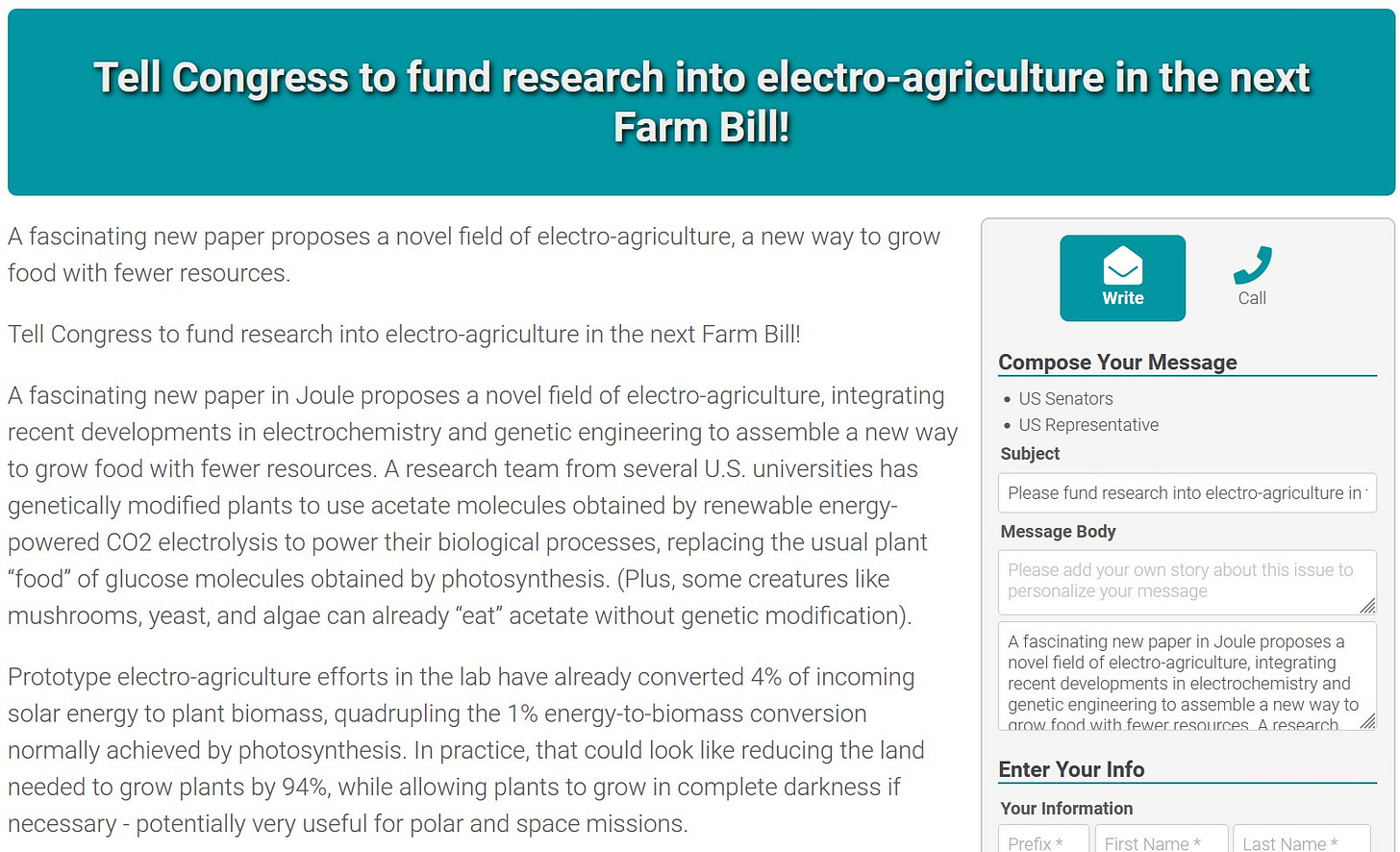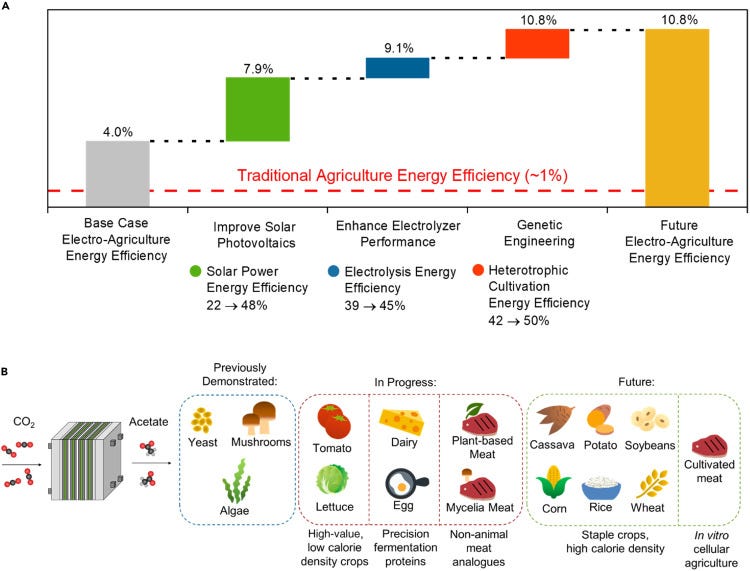Your Daily Dose of Climate Hope: November 19, 2024
A novel field of electro-agriculture!
A fascinating new paper proposes a novel field of electro-agriculture, a new way to grow food with fewer resources.
Tell Congress to fund research into electro-agriculture in the next Farm Bill!
Touch or scan the QR code below to take today’s action in the app and earn trees!
Or take action on the Internet – no app required!
Reasons For Hope
A fascinating new paper in Joule proposes a novel field of electro-agriculture, integrating recent developments in electrochemistry and genetic engineering to assemble a new way to grow food with fewer resources. A research team from several U.S. universities has genetically modified plants to use acetate molecules obtained by renewable energy-powered CO2 electrolysis to power their biological processes, replacing the usual plant “food” of glucose molecules obtained by photosynthesis. (Plus, some creatures like mushrooms, yeast, and algae can already “eat” acetate without genetic modification).
Prototype electro-agriculture efforts in the lab have already converted 4% of incoming solar energy to plant biomass, quadrupling the 1% energy-to-biomass conversion normally achieved by photosynthesis. In practice, that could look like reducing the land needed to grow plants by 94%, while allowing plants to grow in complete darkness if necessary - potentially very useful for polar and space missions.
"If we don't need to grow plants with sunlight anymore, then we can decouple agriculture from the environment and grow food in indoor, controlled environments.
I think that we need to move agriculture into the next phase of technology, and producing it in a controlled way that is decoupled from nature has to be the next step."
-Biological engineer Robert Jinkerson of University of California, Riverside.
This work is currently at very early stages, with only a few crop species like tomatoes genetically engineered to eat acetate so far, but the future possibilities are truly extraordinary!
You’ve probably heard already that Congress is still discussing the upcoming Farm Bill, a huge investment in American agriculture (the U.S. spends an average of $648 billion per year on Farm Bill programs) that’s up for renewal for the first time since 2018. As with our previous Farm Bill-related policy actions on climate-resilient crops, methane-reducing vaccines for cattle, methane-eating microbes, and phytomining, the just-getting-started field of electro-agriculture is a brand-new invention and not really on the political radar screen yet. That means there’s a really great opportunity here to tell Congress to use the Farm Bill to help promote their research and development!





